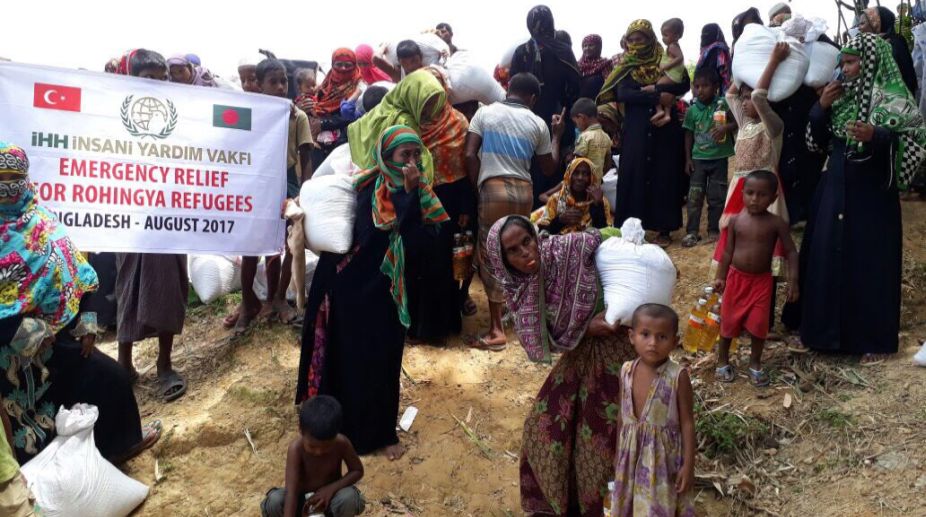The International Organisation for Migration said on Wednesday that 18,000 Rohingya Muslims have fled fresh violence in Myanmar and crossed into Bangladesh, with “hundreds and hundreds” stranded in no man’s land at the countries’ border.
Sanjukta Sahany, a spokeswoman for the IOM in Cox’s Bazar, on the Bangladesh border with Myanmar, released the latest figures as human rights groups and advocates for the Rohingya say the Myanmar army was retaliating for attacks by Rohingya militants by burning down villages and shooting civilians.The Myanmar government blames Rohingya insurgents for the violence, including the arson.
Advertisement
The official death toll in the violence was 96 as of Sunday, and the actual number is likely to be higher.A majority of Myanmar’s estimated 1 million Rohingya live in the northern part of Rakhine state, where they have faced persecution in the Buddhist-majority country.
Last week, Rohingya insurgents launched coordinated attacks against police posts, setting off retaliation by government forces.Sahany said the Rohingya crisis was not an issue between Myanmar and Bangladesh but of international concern.
Ali Hossain, Cox’s Bazar district’s top government official, told The Associated Press that their resources were under huge stress after some 87,000 Rohingya entered Bangladesh since October last year and now another 18,000 in just one week.“I have already informed the government’s high-ups about the trouble we are facing here,” he said.
“This is a very complex situation.”In another development, police said a boat carrying an unknown number of Rohingya capsized in the Naf River, leaving at least four dead. The boat was trying to enter Bangladesh through Shah Porir Island in the Bay of Bengal when it sank, said police official Main Uddin.He said they recovered four bodies and “most probably” many others were missing.“Our search is on. We don’t know how many were on the boat,” he said.
Also Wednesday, Bangladesh’s border guards turned back 171 Rohingya after detaining them at different border points over the last two days, said Col. S.M. Ariful islam, a director of the Border Guard Bangladesh.
He said that border guards provided them with food and medicine before pushing them back, but it was not clear what happened to them later.Myanmar refuses to recognize Rohingya as a legitimate native ethnic minority and has denied citizenship and rights to most of them.











